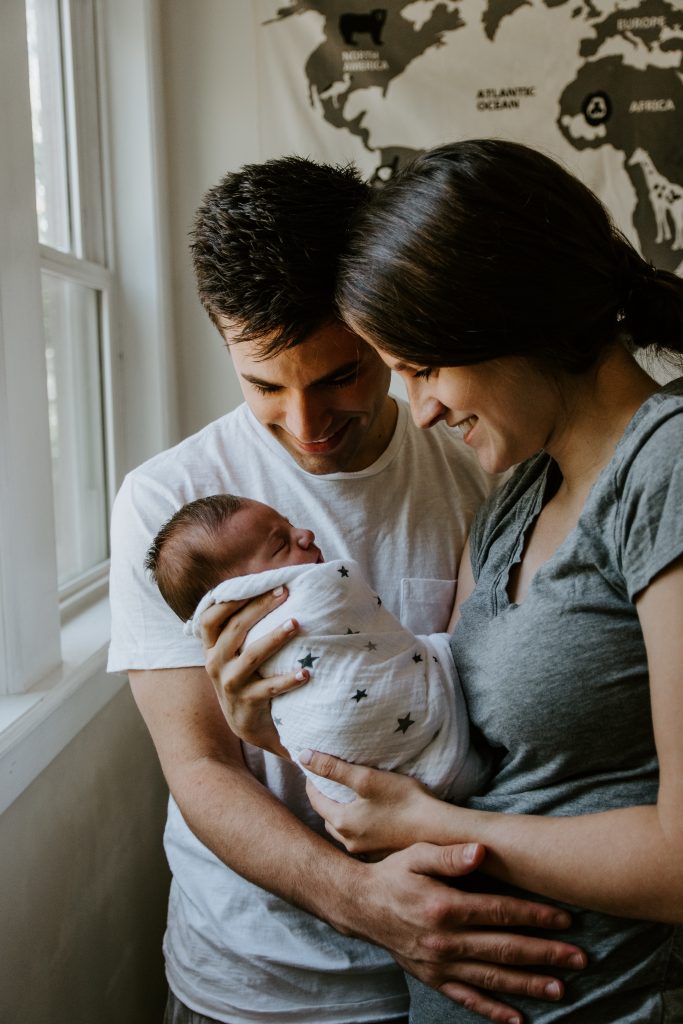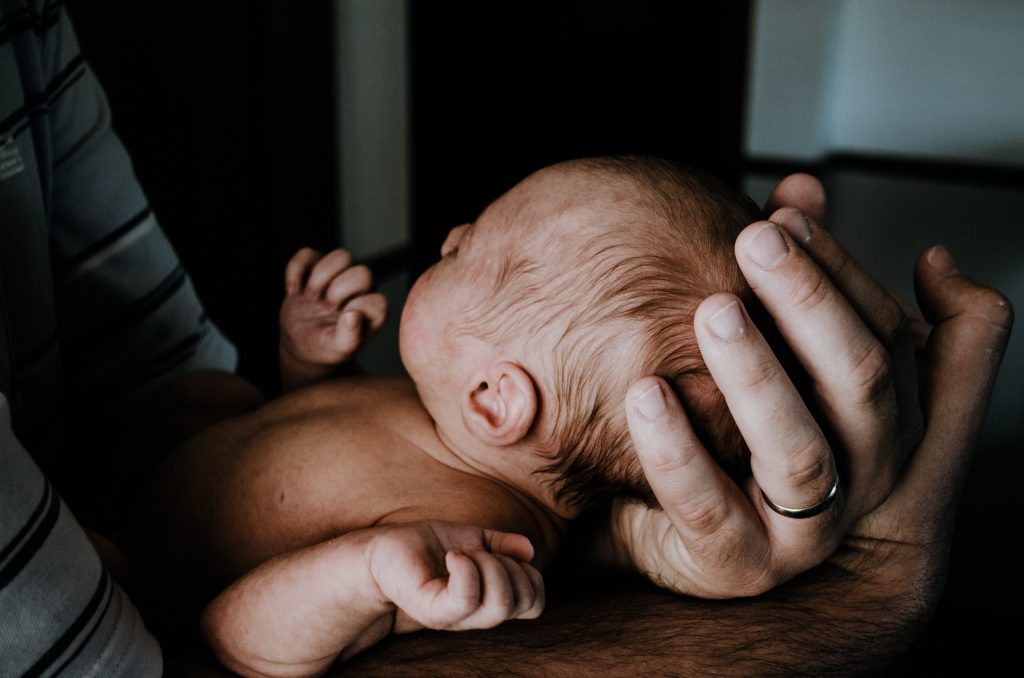This article looks at women’s mental health during pregnancy, birth and the period after birth. Although the focus of the article is on women, it is important to acknowledge, that men can and do experience the same symptoms and struggles as their partners. Depression and anxiety are common mental health issues in both men and women.

Photo Credit Erin
Having a baby is one of the biggest life events you can have and it’s totally natural to experience a range of emotions during and after your pregnancy. There is no “perfect way” to have a baby or be a parent. Your baby and your parenting skills are unique. So its not unusual for you and baby to take time to work out what’s best for your family. It’s only a concern when your emotions start to have a big impact on how you live your life, attachment with your baby, and your relationship with your partner. This may be a sign that you are experiencing a mental health difficulty.
It may surprise you to know, that around one in five women will experience a mental health difficulty during pregnancy or in the year after giving birth. This might be a new mental health problem or another episode of a mental health difficulty you’ve experienced before. These are known as perinatal mental health problems (Mind )

Worldwide 13% of women who have just given birth, experience a mental illness, primarily depression. However, in developing countries, this is even higher with 15.6% experiencing during pregnancy and 19.8% after childbirth. In the most severe cases, mothers may be so ill that they may even commit suicide. This has a huge impact on the family, attachment with the baby and general day to day functioning. As a result, the child’s growth and development may be negatively affected as well. The good news though is, Maternal mental illnesses are treatable (WHO)
How might I feel?
Hurray, you’re pregnant. You may feel excitement and joy, or worry and anxiety. It’s also perfectly normal to feel that you’re not ready to have the baby or you feel you won’t be the best parents.
Be kind to yourself.
I bet you have watched movies and TV shows where mum and dad fall instantly in love with the baby. This doesn’t always happen as you may have had a difficult tiring birth a traumatic pregnancy or relationship issues. From my own experience of giving birth to my first child, all I wanted to do was sleep. Getting to know your baby and developing a bond can take a little time.
It’s a huge change and you may feel sad about the old life you have to give up. Nights out with your friends, time with your partner and your independence. Yes, life will never be the same again, but you will have new and different experiences. There will be a whole new network of friends, different nights out and loads of great days out as a family.
Social Media.
There are also pressures from social media. You may feel you have to act in a certain way or look a certain way during and after your pregnancy. Its hard not to see lots of pictures of happy families and maybe make assumptions that everyone is parenting better than you, that it is easy. The reality is everyone has a mix of happy and challenging times. Don’t be drawn into the social media world – try to have lower expectations and not to be too critical of yourself. It’s perfectly normal to feel exhausted, stressed, overwhelmed and frustrated at times.
Parenting is the most difficult, but also most rewarding job in the world.
What kind of perinatal mental health problems are there?
The signs of perinatal anxiety and depression include:
- persistent, generalised worry, often focused on fears for the health or wellbeing of the baby
- the development of obsessive or compulsive behaviours
- abrupt mood swings, or feeling constantly sad, low, or crying for no obvious reason
- having little or no interest in all the normal things that bring joy
- withdrawing from friends and family
- finding it difficult to focus, concentrate or remember
- having thoughts of death or suicide
- increased sensitivity to noise or touch
- changes in appetite: under or overeating
- sleep problems unrelated to the baby’s needs
- loss of confidence and lowered self-esteem
- fear of being alone with the baby
- intrusive thoughts of harm to yourself or the baby
- increased alcohol or drug use
- Obsessive compulsive traits
” Have I caused this?”
You definitely have not caused this. Whilst there is no one single cause there are a number of risk factors.
- Hormonal changes
- Traumatic pregnancy and birth
- Financial / and or relationship issues
- Social isolation
Perinatal mental health issues are very treatable.
Mediaction can help, so see your GP. Talking Therapies and particularly Cognitive behavioural therapy (CBT ) has proven highly successful. Social isolation is a big thing. Getting out and going to parent groups, playgroups and supports groups is an important part of having a baby.
What are Talking Therapies and how can they help?
Talking therapies are interventions which involve talking to a trained professional about your thoughts, feelings and behaviours. As a therapist my aim is to :
- give you a safe time and place to talk to someone who won’t judge you
- help you make sense of things and understand yourself better
- help you resolve complicated feelings, or find ways to live with them
- help you recognise unhelpful patterns in the way you think or act, and find ways to change them (if you want to).
Mindfulness is a great way to develop resilience and self-care. I believe that everyone has the capacity to be mindful but unless we intentionally cultivate it, we can spend much of our time repeating the same patterns of behaviour, on automatic pilot. Taking the time to learn mindfulness can help you manage the intense stress of childbirth, whilst cultivating life long skills for loving yourself, being a better partner and wise parenting. I love mindfulness and regularly use it with CBT in my sessions with clients.
The Myths.
Myth – It’s only women that experience perinatal mental health issues.
Reality – Both men and women can experience perinatal symptoms and this can be different in intensity and experience
Myth – feeling depressed or anxious is just part of pregnancy and parenthood.
Reality – The first few weeks after becoming a parent can be stressful. You must seek help if you notice that these are lasting longer than a couple of weeks and are having an impact on your daily life.
Myth – it can’t be a perinatal illness as I haven’t had the baby yet.
Reality – Both expectant mums and dads can experience a range of perinatal symptoms.
Myth – admitting you need help and seeking support is a sign of weakness.
Reality – seeking help is essential. No one is judging you and you are doing what is best for your family.

Photo by Kelly Sikkema on Unsplash
If you are struggling with any of the issues in the article please contact us at contact@outofsynctherapy.com.
Karen Tate is an English speaking CBT therapist living in Valencia. She has over 15 years of experience, working with complex mental health issues.
Recent Comments